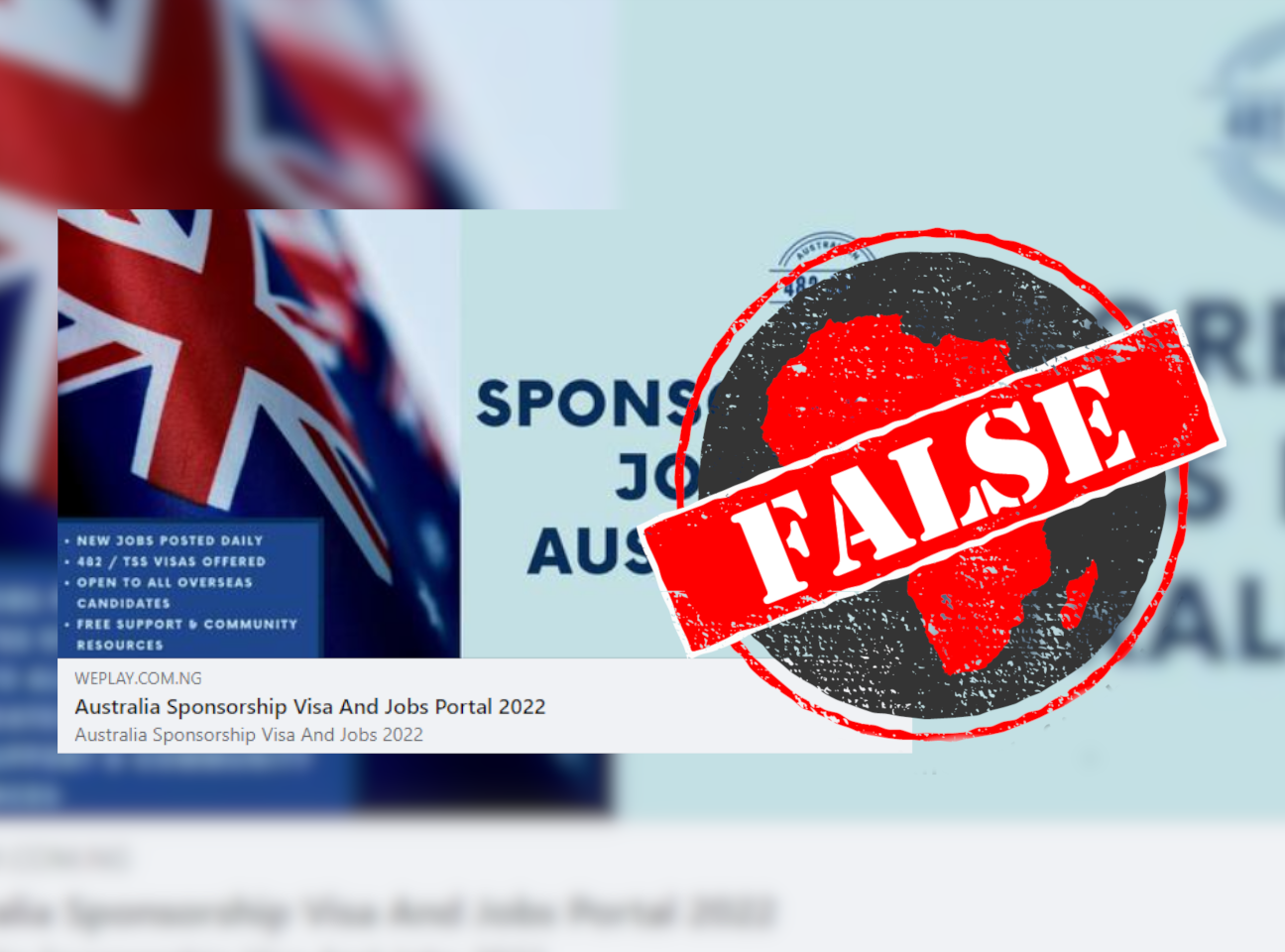IN SHORT: A website shared across African social media promises an easy and quick road to visa sponsorship in the affluent country of Australia. But it’s a scam and could be trying to steal the personal information of opportunity seekers.
“Start your journey towards Australia. Now Companies and Employers in Australia will provide Visa Sponsorship to International applicants and they will invite them to work in Australia,” reads the link to a website circulating on Facebook and WhatsApp in a number of African countries.
“The government is also looking for National & International applicants who can fill the Shortage of jobs in Australia. Australian Public services are giving thousands of jobs,” the message adds.
The website has a banner across the top of the screen reading “AUSTRALIA SPONSORSHIP VISA AND JOB PORTAL 2022 / 2023”. It claims that as many as 195,000 jobs are up for grabs.
The website displays an “application form” which asks for personal details like name, phone number, email, address and country of origin before proceeding.
But is the website and information about Australian immigration legit? We checked.

Signs of scam
When we clicked on the link, our computer antivirus program immediately warned us that it was potentially a malicious link. We took the risk – not recommended – and opened the site.
We then filled in our personal details and were directed to the next stage to validate our name.
Here we were informed that we had qualified to work and study in Australia on the sponsorship programme. But we had to share the website “with 5 groups or 15 friends on WhatsApp” by clicking on a green button.
The website then showed the message: “You will be redirected automatically to our ‘VISA FORM’ page after the GREEN verification bar is filled.”
This is a classic example of engagement bait. These are usually social media posts that ask people to interact by liking, commenting or sharing. This increases the post’s reach but ultimately offers no reward, and certainly no work visa. Such links may also attempt to steal valuable personal information.
Africa Check has previously looked into similar fraudulent posts. To help protect yourself against online fraudsters, read our guide to Facebook scams and how to spot them.
Republish our content for free
For publishers: what to do if your post is rated false
A fact-checker has rated your Facebook or Instagram post as “false”, “altered”, “partly false” or “missing context”. This could have serious consequences. What do you do?
Click on our guide for the steps you should follow.
Publishers guideAfrica Check teams up with Facebook
Africa Check is a partner in Meta's third-party fact-checking programme to help stop the spread of false information on social media.
The content we rate as “false” will be downgraded on Facebook and Instagram. This means fewer people will see it.
You can also help identify false information on Facebook. This guide explains how.




Add new comment